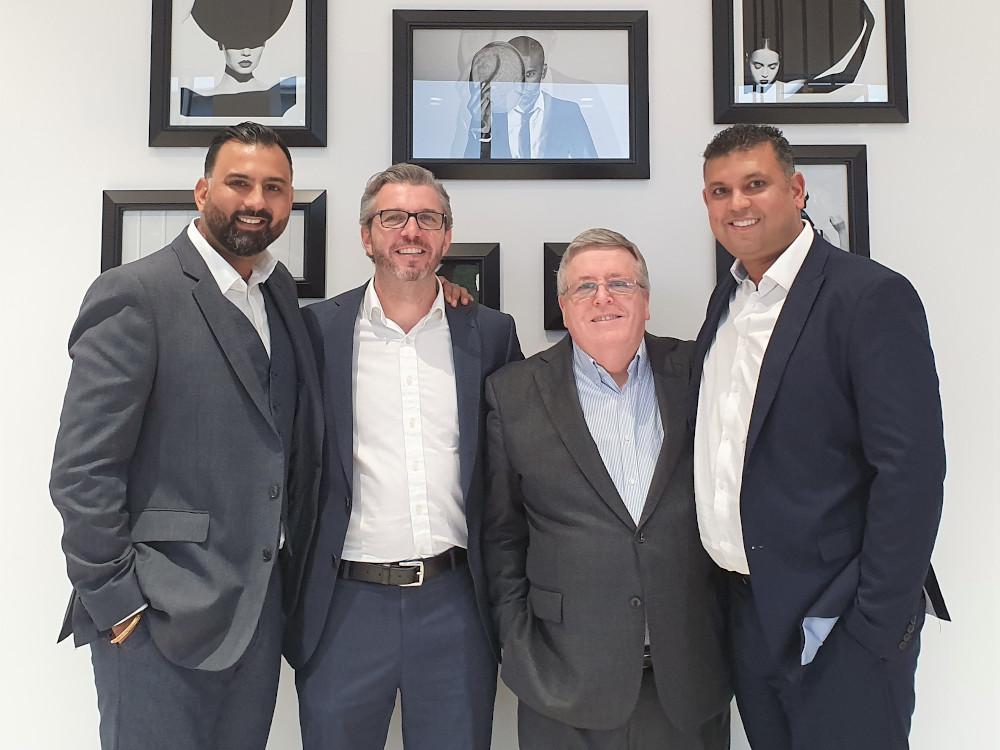Fast 5: Training Academy Gets Off The Ground At Former Monarch Luton Site

In late 2019, the newly established British School of Aviation acquired the former Monarch Aircraft Engineering Training Academy in Luton, UK. Anoop Singh Bamrah co-founder and chief operating officer at BSA, tells James Pozzi about how the school plans to become a world leader in maintenance technician training.
How did the acquisition of the former Monarch Training Academy in Luton come about? Could you share some details of the timeline?
It was a very long process with KPMG, starting from January last year before being finalized nine months later. When we initially approached KPMG, the project was bubbling for some time. After Monarch Aircraft Engineering collapsed, training was still being conducted. We kept in touch with MAEL training manager Paula Collins, who now holds the same role as Training Manager here at British Aviation School (BSA). Paula has nurtured trainees for years and had a track record of running exceptional courses for them. When KPMG met potential buyers, we made it clear that we didn’t see this as a chop shop – we saw a fantastic facility that needed to keep operating and providing a valuable service to the industry that few in the UK can do. We decided that regardless of whether we acquired the building, we would pursue this training project regardless. Eventually, we had several options, but this was the best one as it was purpose built to be an academy and ready-made for our requirements.
What are the objectives behind setting up the British School of Aviation?
The point of the BSA is to remove barriers – it isn’t about which candidates have the most money, but instead which ones have the best skills for the job. It is about building experience for aircraft technicians and engineers, and getting them sufficiently trained to succeed in their careers. We are trying to help break the vicious cycle of lack of experience preventing engineers from getting the jobs they want. It’s a collective effort to achieve this – we are working with employers at London Luton Airport, along with Luton and Bedfordshire’s County Councils to ensure opportunity for people who want to become aircraft engineers. As an equal opportunities provider we fully embrace diversity regardless of gender, religion, sexuality or any another perceived barrier which may exist. BSA ensures that an inclusive working environment is always fostered and simply put, the best candidate for the job is the best regardless of the above. Our training manager Paula Collins spearheads this as a Part 147 Type Training Instructor who is at the top of her field.
What will the timetable look like for student intakes?
The first 16 students came through the door last November and undertook an eight-week program of type training on the Boeing 787 aircraft. The graduation of these students took place at the end of January, shortly before the second wave of students arrived at the site to also undergo 787 type training. Most of our students for these types of courses will already be working at airlines who will fund this.
Will further approvals be forthcoming in 2020?
We are seeking further approvals at present – for instance, type training for the Boeing 737 is underway with the UK CAA and we hope to have this in place very soon. We also plan on gaining Airbus A320 training approvals along with certifications for corporate jets. Looking on a more long-term basis, we are in the process of gaining RAE status as a Drone Training provider from the CAA and hopefully be one of the first with that accreditation.
There are plans to create a network of BSA-affiliated training locations across the world and a goal to train 3% of the entire industry by 2025. What is the strategy behind this?
The Luton training center will be the first in the network. The quality of British education is recognized globally, and we want to uphold that and get a premium product available to the market while being recognized as good operators. Long term, we want to make sure we have several bases in geographically prominent areas and where the industry is. We hope Luton will serve as a blueprint to work with other national authorities and show we can offer the right type of training. However, we must cover our bases and ensure that any growth is achieved organically and at a steady rate.





